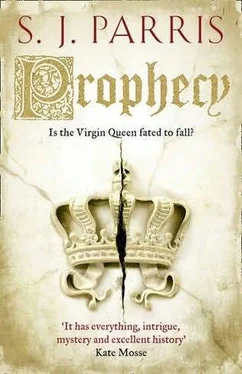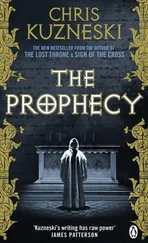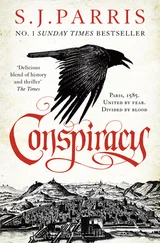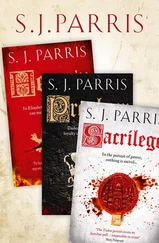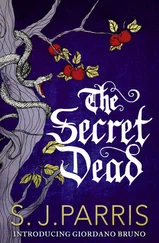‘And what is coming there, Claude?’ I say, determined to keep my voice light. ‘Something King Henri should know about? Or my lord ambassador? Some sort of coup, perhaps? As a loyal subject, I’m sure you would share whatever you knew to protect your sovereign. Or do your loyalties lie elsewhere now?’ I pull my shirt over my head and stare him down; to my satisfaction, he looks away first. I glance over his shoulder and see Marie standing in the doorway, her arms folded across her chest and her lips pressed into a white line.
‘If my husband hears a word about this, you will both be on the next boat to France with such a stain on your reputat ions that you will never find a position in the French court again,’ she says, pointing between us. ‘Understand?’
‘Marie — I have done nothing! I came to bring you this and found him here.’ Courcelles flaps his letter at her, aggrieved. She gives him a long, reproving look.
‘Don’t be disingenuous, Claude. We must all keep one another’s confidences in this house.’ She looks from him to me and I realise then that Courcelles is familiar with this room, this bed. I watch Marie with rising anger. She certainly knows how to keep herself busy. The worst of it is that I am most annoyed with myself for feeling even a passing stab of jealousy. Then I think of Castelnau keeping his lonely night vigil in his study and the anger is displaced by a wave of guilt.
‘How is Katherine?’ I ask.
‘She’ll be fine.’ Her tone is clipped now, businesslike, as she reaches for the letter and breaks the seal. It is clear that I am no longer required. ‘You had better go, Bruno. And lace your shirt. We don’t want the servants to gossip.’
Courcelles aims a look of pure hatred at me as I reach the door, but my attention is fixed on the letter in Marie’s hand. What can Howard have to tell her since last night, unless it is something about me?
‘Bruno,’ she says, holding out her hand, palm up. ‘The box?’
I realise I am still clutching the green velvet casket. I pass it over with a muttered apology; she narrows her eyes, then her face softens and she squeezes my hand briefly. ‘Perhaps we will pick up our discussion where we left off another time.’
Lifting her hand, I press it to my lips in a grand gesture, just to irritate Courcelles, who appears ready to explode with an excess of choler. I may not have achieved everything I came here for, but I have discovered Marie’s underlying motive. What part does Courcelles play then, I wonder, considering him as I stand in the doorway and he watches me with the face of a man who would gladly commit murder at this moment? Does he know about the Duke of Guise, or does he believe that he, Claude de Courcelles, is destined to replace the ambassador at Marie’s side when the glorious Catholic reconquest is complete? Either way, I sense that the two of them have closed ranks against me, standing shoulder to shoulder as they wait for me to leave so they can discuss this message from Howard, and again I am furious with myself for feeling that she has toyed with me; absurd, too, when it was I who went to her chamber with the intention of tricking her in the first place. I give them a last look, then leave them to their plotting. As I pass the door of the nursery, I catch the muffled sound of a child crying.
City of London
3rd October, Year of Our Lord 1583
Back in my own room, my shirt laced, I grow increasingly troubled by the thought of that letter from Henry Howard, which Courcelles and Marie are reading even now. He will not have told them anything like the truth, but if I were to second guess him, I would expect him to have concocted some story about having discovered my betrayal of them all, some reason why they should keep me within their sight until he finds another chance to remove the threat that he fears I pose for him.
I would give almost anything at this moment for the chance to see Sidney, to have him make light of my predicament by punching me in my painful shoulder, then draw his sword in my defence. But Sidney is miles away in Barn Elms, and with Howard’s men on the lookout for me, I would not wager much on my chances of reaching Walsingham’s house in one piece. Wind buffets the window frames, making them rattle like teeth, and through the panes I can see only churning grey clouds. At this moment my heart feels constricted and I cannot escape the thought that England has been a mistake. I thought it would bring me freedom from persecution, but since I landed on this friendless island it seems I have done nothing but put myself on the wrong side of Catholics who want to kill me. I could have stayed in Naples for that, I think, gloomily, though I know the fault is my own; no one forced me to accept Walsingham’s offer of a place in his network of informers. I chose it because I found him to be a man I respected, and because, as I had told Fowler, I believed that the freedoms Queen Elizabeth had established here were worth defending against the tyranny of Rome. And — let me not fool myself — because I knew that to serve Elizabeth and her Principal Secretary in this way was likely to bring me reward and patronage of a kind no writer can advance without. Now, as I pace the confines of my room, I fear my life will be in danger if I leave the embassy or if I stay here.
But I am not altogether friendless in London; in the absence of Sidney, there is one person a little nearer with whom I can share a confidence. If I can get as far as St Andrew’s Hill and reach Fowler without being attacked, I could at least stick close to him; I would be less vulnerable in company. I picture again poor Dumas grabbed as he passes the mouth of an alleyway down at the wharf, the cord pulled tight around his throat before he can draw breath to scream, his frantic struggle for life unseen even as his limbs give their last few spasms and fall to stillness, before his body is dumped like a sack of refuse in the river. If I can avoid that fate for long enough to find Fowler, I can solicit his opinion on my unfinished theory, formed in my restless half-sleep this morning: that Marie, prompted by the Duke of Guise, was behind the plot to poison Elizabeth on Accession Day. She paid Dumas to steal the ring, while Courcelles, with his winning face, was drafted in to seduce Cecily and provide her with the means to kill; for whatever reason, Cecily lost her nerve and had to be silenced. Perhaps the graphic display pointing to a Catholic threat was meant to turn the court’s attention to the known English Catholic sympathisers in its ranks. Either way, the one element missing from this equation is who actually carried out the murders. I don’t doubt that Marie could be ruthless enough to take a life, but she would lack the physical strength; besides, she would regard butchery as servants’ work. Courcelles has always struck me as the sort of man who would pass out if he cut his finger on his dinner knife, but perhaps he is a better performer than I have given him credit for. Even if that were true, both Marie and Courcelles were standing beside me at the concert when Abigail Morley was murdered, so who was their accomplice, their third man?
I snatch up my doublet in a moment of decisiveness; I will not stay here pacing this room waiting for Howard’s thugs to come and find me. I pull on a cloak over my doublet and then remember that I have left my leather riding boots at Arundel House; I will have to wear the shoes I keep for finer weather, though the recent rain will have left the streets in a mire. Before I leave, I prise up the loose floorboard beneath my bed where I keep the chest with the money I receive from Walsingham. It is not a fortune — not compared with the risks I run for him — but it does at least allow me a standard of living in London that King Henri’s sporadic stipend would not provide. I will need to have new boots made — no one can survive a London winter without them, I have been told. Perhaps I can persuade Fowler to accompany me. In any case, I will retrieve my dagger from Castelnau’s study on my way out and take my chances in the city streets; that at least is better than cowering in my room with endless theories multiplying in my head and no solid evidence to prove or disprove them.
Читать дальше
Конец ознакомительного отрывка
Купить книгу
